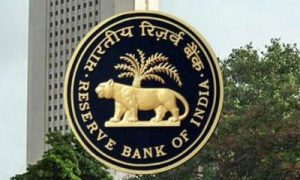RBI Repo Rate Hiked: The Monetary Policy Committee of the Reserve Bank of India has increased repo rates by 50 basis points to 5.4 per cent. Why has it opted for a hike, and what impact will it have? What has the central bank said on India’s growth and inflation?
As inflation continues to remain at elevated levels and above the Reserve Bank of India (RBI)’s target of 6 per cent, the Monetary Policy Committee (MPC) Friday decided unanimously to increase the repo rates by 50 basis points to 5.4 per cent with immediate effect. This is set to increase lending rates and EMIs of existing home loan customers.
While RBI Governor Shaktikanta Das maintained a GDP growth of 7.2 per cent for FY23, inflation has been projected at 6.7 per cent for the year 2022-23.
As the MPC felt the need to focus on inflation, it also decided to focus on withdrawal of an accommodative stance.
RBI Repo Rate Hike by 50 bps to 5.4%: Why?
“With inflation expected to remain above elevated levels, the MPC felt further calibrated withdrawal of monetary policy accommodation and accordingly it decided to increase repo rate by 50 basis point,” said Das. He said that calibrated accommodation is to keep inflation within the target along with supporting growth.
Also Read : New GST rule on house rent: Do you have to pay 18% tax?
Das maintained that against the prevailing global environment, where there are geopolitical challenges and a rise in global commodity and food prices, and at a time when central banks have been raising rates, “the domestic economy remains resilient”.
He said that the CPI has eased from its surge in April but remains uncomfortably high and above the target of 6 per cent. Core inflation remains at elevated levels and the volatility in global markets is impinging on domestic markets including currency.
How external factors will impact India
The Governor said the inflation trajectory will depend upon global markets and geopolitical developments. “There has been some let up in commodity prices and softening in global food prices. The resumption of wheat supply from the Black Sea region could help tamper inflation,” he said.
While household inflation expectation has eased, Das said it remains at elevated levels. If the monsoon is normal, and at an average crude oil price of $105 per barrel for the year, “inflation is projected at 6.7 per cent in 2022-23,” Das said.
Also Read : Piped Cooking Gas Price Hiked in Delhi, Noida, Gurugram, from Today; Know New Rates
The Governor highlighted the risks being faced globally and the impact it will have on emerging economies, including India. He said that while the International Monetary Fund has highlighted recession risk and revised global growth, for emerging market economies the risks are magnified as they have domestic inflation concerns and there will be impact of monetary tightening worldwide.
“The Indian economy has been impacted by the global economic situation. We have been grappling with high inflation and financial markets have been volatile,” Das said.
He added that there has been fund outflow of $13.3 billion during the current financial year, so far, till August 3. He, however, said that with strong and resilient fundamentals, India will be one of the most resilient economies in 2022-23.





































